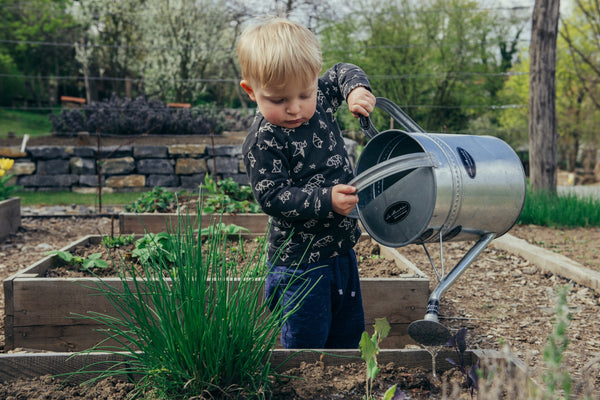Four Eco-Friendly Tools for the Sustainable Gardener

Minutes to Read: 3 Minutes

As we mentioned in our blog post "Putting Together a Green Home", homeowners can play their part in keeping the planet healthy by implementing easy lifestyle changes within their households. Simply making the switch to eco-friendly products –– such as natural loofahs, handmade soaps, and reusable cotton rounds –– can easily help households reduce their carbon footprints.
Homeowners can also apply these changes to eco-friendly hobbies like gardening. The practice of gardening already helps the environment by protecting the soil, producing clean air, and supporting small animals like birds and insects.
By using eco-friendly gardening products though, gardeners can go even further toward creating a positive environmental impact. To help you build your eco-friendly gardening arsenal, we’ve listed a few useful tools you may want to consider for sustainable practices!
Summary
Natural Weed Killers
The biggest problem with store-bought weed killers is that they don’t just harm the weeds in your garden. SymptomFind’s article on weed killers explains that they can also contaminate drinking water and threaten the health of your family, your pets, and the wildlife around you. To avoid these harmful issues, you can instead get rid of weeds by making a natural weed killer at home.
Vinegar-Based Spray
- 1 gallon of vinegar
- 1 tbsp of dish soap
The acidity of vinegar helps it absorb moisture from weeds, thus killing them without the use of harmful chemicals. You can also apply cornmeal to your soil to prevent weed seeds from germinating any further!
Biodegradable Pots
To cut down on plastic usage in your garden by sowing seeds, using biodegradable pots is another option to try. According to Gap Garden’s list of biodegradable pot benefits, pots made out of biodegradable fibers are better for overall plant health.
Their soft fibers will break down in the soil naturally, allowing growing seedlings to spread their roots out and breathe. And since they are single-use and do not require any washing or sterilizing, these pots also help gardeners save water.
Biodegradable pots can be made from paper, coconut fibers, recycled pulp, bamboo, and even manure.
Eco-friendly Gardening Gloves
The usual materials used in making traditional gardening gloves –– namely rubber, cotton, and leather –– tend to be associated with unsustainable manufacturing processes. But you can protect your hands and mitigate your environmental impact while gardening by using gloves that are instead made from eco-friendly fibers, such as organic cotton.
Data compiled by LIVEKINDLY conveys that farmers of organic cotton have made the cotton manufacturing process more environmentally friendly by reducing water consumption to 88%, banning pesticides, and implementing healthy soil-building practices. Additionally, organic cotton is free of toxic chemicals, which allows it to safely degrade into the earth once disposed of.
Recycled Watering Can
Finally, cut down on water consumption by opting for a watering can over hoses or sprinklers. To avoid throwing out worn or broken watering cans, you should opt for cans that are made out of durable materials, such as metal.
You can also reduce waste by making watering cans out of recycled materials, with a Balcony Garden Web overview of DIY watering cans suggesting items like old bottles, milk jugs, or mason jars.
Gardening is one of the most eco-friendly hobbies you can practice at home. By caring for plants, gardeners help improve soil quality, produce clean oxygen, and support animal life. But you can make the hobby even more eco-friendly by using the proper substances and materials to minimize unwanted environmental disruption.
Want to read more on environmental health and tips like how to reduce water pollution? Head to ConsumerNotice.org for more information.

- Tags: eco swaps
0 comments

